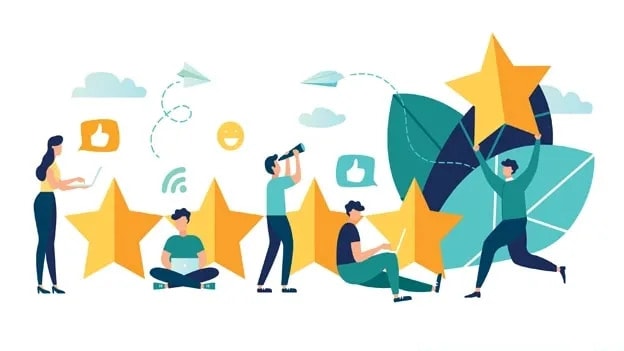Reimagining employee experience with intelligent Total Rewards Management

Changing employee preferences, such as the demand for flexibility, forces companies to rethink existing talent management practices. Amidst rapidly evolving employee experiences and competition, companies that can design the right employee experience stand to gain a competitive advantage. To unpack insights into building a new-age compensation mechanism that promotes flexibility and agility, People Matters and Compport bring you this exclusive webcast with industry leaders Navneet Rattan (Session moderator), Partner & COO India and Global Product Head, Compport Private Limited; Kashish Kapoor (Panelist), Vice President - Human Resource (Head HR), NEC Corporation India Private Limited; Manavi Pathak (Panelist), Talent Development - Learning Head, Trent Ltd; and Renu Bohra (Panelist), Chief People Officer, DB Schenker sharing their expert insights.
Relooking workforce trends
The talent shortage continues to be a problem, and organizations are developing their methods of incentivising candidates to join and employees to stay through higher compensation or hefty joining bonuses. Some of the critical shifts in attracting and retaining talent are:
- Employee wellbeing has taken centre-stage to offset the negative impact of the pandemic on engagement and performance.
- Reskilling and upskilling efforts have upped to prevent attrition and fill niche roles, i.e. an inside-out approach.
- Candidate experience is all-important: Re-examining the EVP to make it compelling and differentiated. “As candidates are commanding the market, we are being told what EVPs and cultures are to be designed”, says Kashish.
- Diverse and distributed workforce: We will see increasing instances of multi-generational workers, under-represented populations, and distributed work models. Similarly, the gig workforce will become more prominent, with gig workers negotiating for more benefits and long-term wellness benefits. “The underlying theme is flexibility”, shares Renu.
Kashish believes that in today’s dynamic, market-driven scenario, empathy, resilience, and empowerment will determine how to make things work tactically.
Key rewards trends and challenges
During the past 2 years, the key trend revolved around doling out Adhoc salary reviews and joining bonuses for attracting and retaining employees. “Retain at every cost was the message”, says Renu. But today’s talent pool is not just assessing wages and bonuses, but ‘what is the workplace’. For example, as a solid preference for permanently work-from-home emerges, companies are changing office décors and even offering fancy exotic tea and coffee experiences to attract people to work from the office. Going forward, we will see an increasingly skills-driven rewards model. “We have now stopped talking about experience; we are talking more skills, competencies, role fitment, redefinition of scopes, etc.” shares Kashish. Recognition, too will be closely linked to rewards, not necessarily monetarily, but with flexible benefits like health. “In effect, the R&R of tomorrow is only one part of the entire value proposition, a hygiene factor”, says Manavi.
Designing rewards for talent engagement
Organisations can no longer rely entirely on rewards for talent retention and engagement. Talent skilling, conversations with senior leaders, career pathing, etc. need to be dialled to create a holistic employee experience. “Till now, rewards have been designed to fulfil organizational needs, so we need to fulfil the needs of our customers, i.e. of talent”, quips Renu. ‘What employees want is the mantra to make rewards sustainable. For example, a key employee need that emerged during the pandemic was sanity around work-life balance. This is especially true for millennials who are wired differently, from demanding flexible medical insurance to not wanting to work a 9-5 job. “Connecting the dots through dialogue will make a very healthy and holistic EVP for the organization; the flexibility-quotient has to be handed over with more trust”, says Kashish.
Moreover, employees are looking for more value for their time, not just take-home or in-hand. Hence the modern-day organization has to be adaptable to look for more diverse pools basis skills, with upskilling investments and linkage to the rewards piece. “The dialogue has to be stronger, the walk-the-talk more tangible”, reiterates Kashish. Tech can be a crucial partner in enabling this.
Tech as an enabler of employee experience
Technology creates democratization of opportunities—Manavi shares how they used a 360-degree, mobile-enabled tech tool for an R&R initiative. “We created energy and enthusiasm; we broke through hierarchies by creating badges related to diversity, collaboration etc. The tool usage was higher by the younger generation”. At Schenker, a gamification-based health app got people of all ranks, ages, roles and BUs glued. “The platform was not just about rewards, but with an inherent message of health. We drove engagement by connecting it with a social cause, where building health habits supported an NGO”, says Renu.
But adoption continues to be a conundrum because a section of the population inherently fears tech. Kashish believes people need to be given time for the sustainable adoption of technology. A well-planned soft-landing can help easier adaptability, exposure, and interest and then bring people onto tougher aspects. Tech success is about giving employees a feeling of decluttering and simplicity and ensuring no talent pool is excluded. Navneet agrees that the critical thing to understand is that the idea of tech is not to become tech but to leverage it. Only then can organizations unlock the value for employees.
Tech-driven rewards design is not just an HR prerogative; it requires an overall mindset shift. Bringing in business partnerships and leadership championing right from the concept and tech design stage are critical success factors. Manavi believes that the design of the next-generation rewards needs to be personalized, agile and holistic. Renu recommends the centricity of the user and empathy as essential elements of rewards design. For example, we should genuinely understand the target audience when discussing flexibility. This can be achieved only by being open to experimentation. Manavi agrees, “We are working with a new generation which does not want to work till the age of 50, so we have to think about the future of rewards beyond stock options. Maybe equity-to-debt ratio, cryptocurrency etc. can help employees retire early with secure financials? We need to experiment and try it out in the organization”. Ultimately, intelligent total rewards management boils down to the behaviours we are driving, believes Kashish. Moving away from rewarding mere performance and targets to rewarding behaviours will help cultivate a great culture and employee stickiness and build future leaders. “A future-looking EVP cannot be based on just tangible things”, concludes Kashish.













